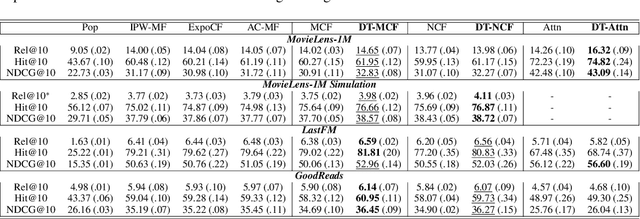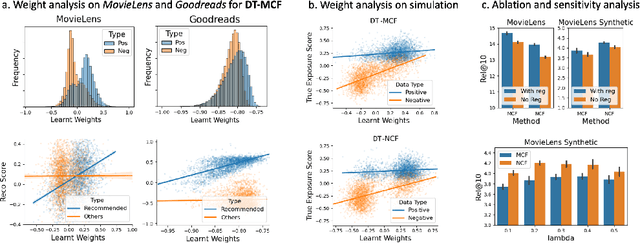From Intervention to Domain Transportation: A Novel Perspective to Optimize Recommendation
Paper and Code
Mar 26, 2022



The interventional nature of recommendation has attracted increasing attention in recent years. It particularly motivates researchers to formulate learning and evaluating recommendation as causal inference and data missing-not-at-random problems. However, few take seriously the consequence of violating the critical assumption of overlapping, which we prove can significantly threaten the validity and interpretation of the outcome. We find a critical piece missing in the current understanding of information retrieval (IR) systems: as interventions, recommendation not only affects the already observed data, but it also interferes with the target domain (distribution) of interest. We then rephrase optimizing recommendation as finding an intervention that best transports the patterns it learns from the observed domain to its intervention domain. Towards this end, we use domain transportation to characterize the learning-intervention mechanism of recommendation. We design a principled transportation-constraint risk minimization objective and convert it to a two-player minimax game. We prove the consistency, generalization, and excessive risk bounds for the proposed objective, and elaborate how they compare to the current results. Finally, we carry out extensive real-data and semi-synthetic experiments to demonstrate the advantage of our approach, and launch online testing with a real-world IR system.
 Add to Chrome
Add to Chrome Add to Firefox
Add to Firefox Add to Edge
Add to Edge